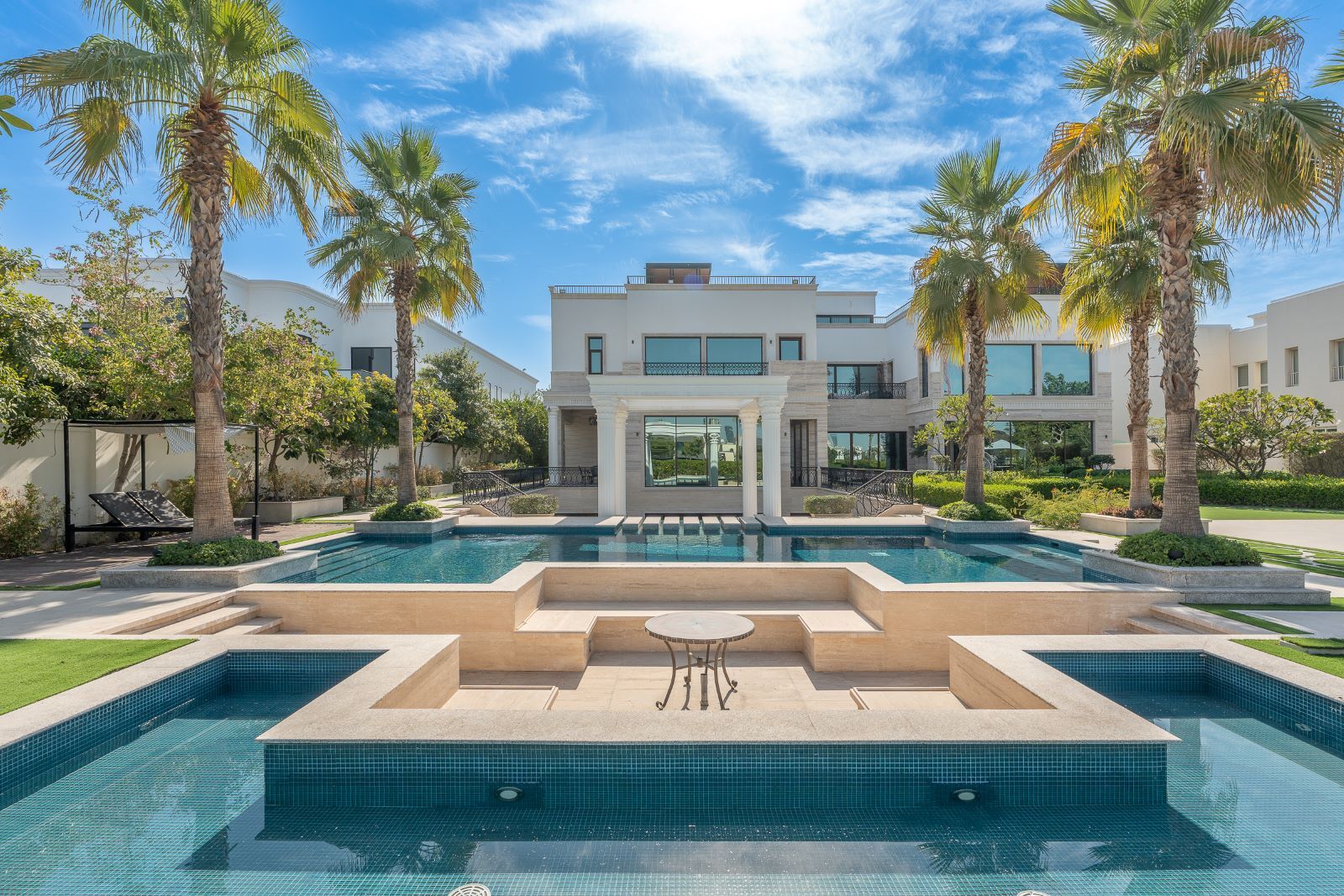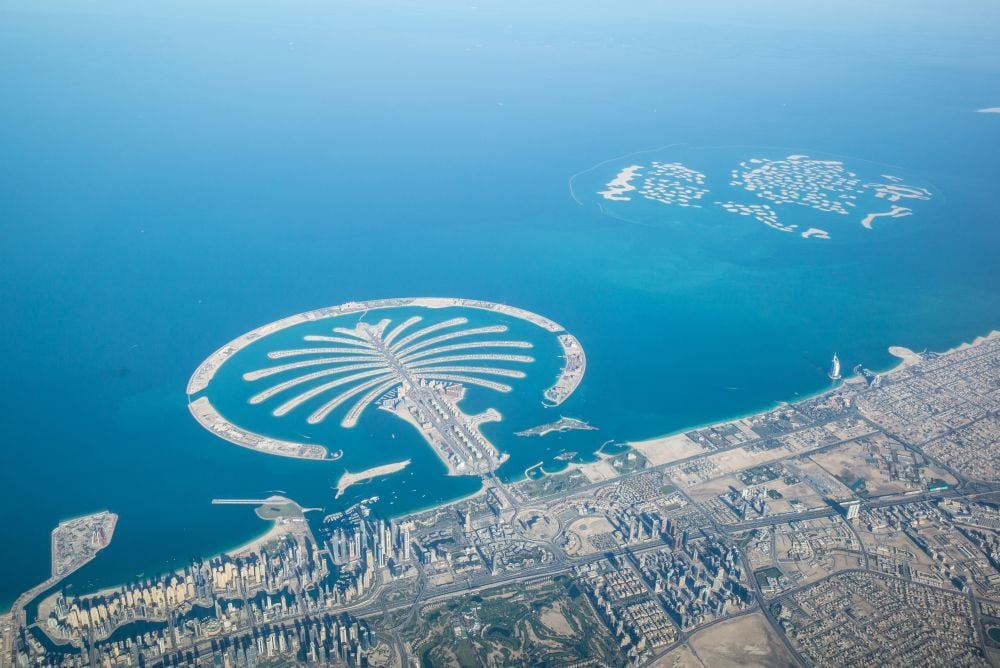Tomorrow’s Grandeur: The Future of Dubai’s Super-Prime Properties
Published: 03 June 2025
Prime and super-prime properties set the benchmark for excellence in Dubai’s real estate market. These residences feature expansive, open-plan layouts across multiple levels, outfitted with the highest-grade furnishings and fixtures: swimming pools, private cinemas, and state-of-the-art gyms are all standard. However, homes of the future, while retaining these sophisticated features, will also be designed with sustainability in mind.
In a market characterised by constant innovation and technological advancement, the question now becomes: what lies ahead for Dubai’s luxury property sector? From smart technology to advanced security and eco homes to health and wellness, read on to explore the emerging trends shaping the next generation of prime real estate.
.jpg?width=1000&height=667&name=unnamed%20(45).jpg)
Seamlessly Smart Technology
Smart homes are not a new idea. Residences equipped with the latest technology designed to make life easier are a common feature throughout Dubai’s super-prime property market, due to one simple fact: they work. So what comes next?
The smart technology market is rapidly evolving. Smart homes of the future will build on – and further develop – some of the systems we see on the market today, featuring singular, intuitive platforms that learn the habits of residents, continually tweaking the environment of homeowners to suit their ever-changing moods – and needs. AI-driven personalisation will be a key feature of smart homes, which will strive to make properties more responsive, predicting needs based on a whole range of factors including body temperature and air quality. Kitchens and the appliances within them will be able to track calorie intake whilst monitoring important body health markers, such as blood sugar and other key characteristics, and recommending meals based on potential deficiencies. Companies such as Google, Apple and Amazon all offer such services, while smaller startups like ORVIBO and Dubai-based eSmartHome offer a more personal option.
Automatically Advanced Security
Whilst all of the above are key features of smart homes, the most important aspect of any home is undeniably security. Enhanced systems will use biometrics to provide users with stronger protection in never-before-seen ways. These highly advanced processes will use things like continuous monitoring; instead of a single scan on entry, cameras will evaluate the home to continuously verify residents – using key personal attributes such as a person’s gait to make sure everything is how it should be. Key players in the space such as Samsung offer seamless security services via their SmartThings app, allowing users to set custom routines based on time of day, location or sensor data – all designed to make life that much more convenient.
When added to other important upgrades such as multimodal biometrics – via companies such as BioConnect and ZK Teko – smart homes of the future will be virtually impossible to penetrate. Facial recognition, voice and retina scans will all combine both seamlessly and simultaneously, making the possibility of hacking a thing of the past. Other, more advanced systems, such as emotion and stress detectors – currently being developed by companies such as EmoSense – can serve as an added line of security; these highly advanced techniques can flag suspicious behaviour, which reduces vulnerability in high-security environments.
Further down the line, ultra-high-tech DNA and vein pattern recognition will further increase security, whilst remote verification will speed up authentication processes by scanning your person as you approach the residence, eliminating the need for any interaction with a traditional scanner. According to the UK’s National Crime Security Centre, Vein patterns can be captured by illuminating a body region with infrared light and then photographing the reflected light.
Ethical Eco Homes
Whilst smart homes will strive to keep the end user happy, they will also be in sync with the environment, an issue which more and more people are becoming attuned to.
When buying a super-prime property in the future, you can expect a big push towards more greener, sustainable technology throughout the home. Solar panels, whilst occasionally used today, will feature extensively in extravagant homes, especially in Dubai, a city which receives around 3,500 hours of sun per year. For added context, Miami – a famously sunny city itself – receives around 2,900 hours per annum.
Smart water management systems – currently on the market from companies such as Siemens – will also become a more common feature. Helping with things such as leak detection and prevention, these systems automatically shut off the water supply when any leak is found. Other things like smart irrigation will adjust water schedules based on weather conditions, or plant needs – eliminating the need to worry about garden upkeep, a welcome relief in Dubai’s desert climate. Smart water management systems will also offer cutting-edge solutions such as greywater and rainwater harvesting – which will filter and repurpose sink and shower water for non-potable uses. Considering the climate, this will be of great benefit to homeowners of the future who are conscious of the environment. The most advanced systems will be able to check the quality of water running through the house for things like pH levels, contaminants and hardness – warning residents if something is off.
Hybrid Health and Wellness
Health and wellness will also, likely be fully integrated into the home of the future. Whilst prime and super prime homes will come with the environment in mind as standard, they will more than likely be designed to benefit the health of the end user.
It is thought that properties will increasingly feature health monitoring systems such as air purification and circadian lighting, designed to optimise the living environment for the end user. Stress-reducing features, such as frictionless entry, calm and reassuring lighting via haptic and visual feedback measures, as well as predictive assistance which can anticipate your needs are also a strong probability. Ergonomic, user-friendly interfaces will all feature extensively in the homes of the future – some having already been integrated into modern homes – minimising the frustrations that can accrue when using advanced technology.
Fitness and recovery spaces will also be catered for. Infra-red spas – which can help promote better sleep, relaxation, and detoxification amongst other things – should come as standard, whilst cryotherapy pods, perfect for recovery after a hard workout, will be built in. Virtual personal trainers might also be available through the incorporation of AI.
Super-prime homes of the future will be fully equipped with the very latest technology has to offer. From smart homes combining multiple systems and advanced security protocols to eco homes featuring the latest in environmentally sustainable technologies and health and wellness systems, the super-prime homes of the future will continue to lead the way where technology is concerned.



.png)